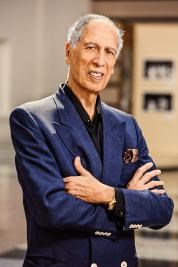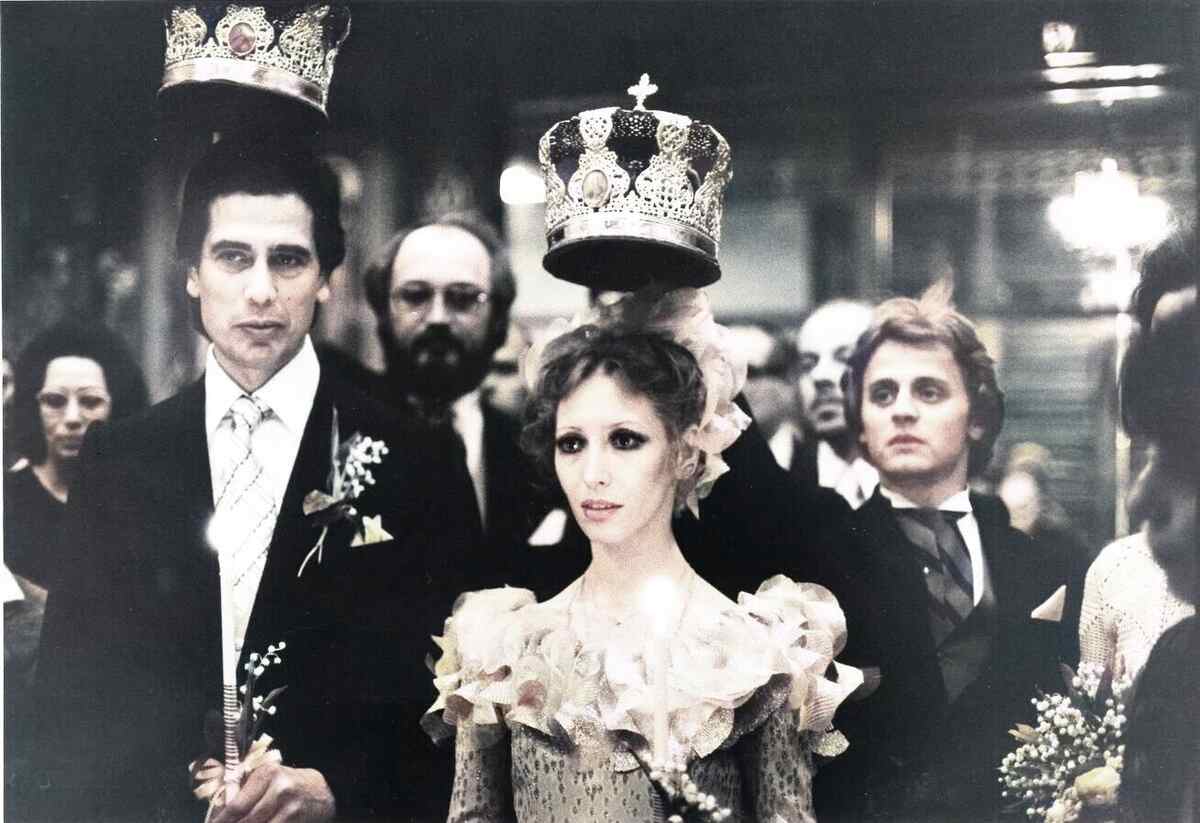
Edward Mitri Karkar was a trailblazer in the telecommunications industry and a key figure in the early days of Silicon Valley. Born in Jaffa, Palestine, he overcame the challenges of being a refugee to become one of the first Palestinian immigrants to achieve major success in America. In 1959, he founded Karkar Electronics, a company that developed groundbreaking voice and data communication tools.
His work supplied major organizations like the U.S. Department of Defense, NATO, AT&T, and Raytheon, shaping the way the world connects. Edward’s vision and leadership not only advanced technology but also helped make Silicon Valley a global tech hub. His legacy lives on through his son, Andrei Karkar, who now leads ERAS Holdings, the family’s investment firm.
This article explores Edward Mitri Karkar’s life, from his early struggles to his lasting impact on telecommunications and Silicon Valley. It also highlights the role of his son and the significance of their companies.
Early Life
Edward Mitri Karkar was born in 1932 in Jaffa, Palestine, a bustling coastal city known for its rich history and trade. He came from a well-known family, but his early life took a dramatic turn during the 1948 Arab-Israeli War. The conflict forced his family to flee, turning them into refugees. Despite losing their home, Edward’s determination and curiosity remained strong. These tough experiences shaped his character, teaching him resilience and the value of hard work.
As a young man, Edward made the bold decision to move to the United States. This was a big step for a refugee from Palestine, but he saw America as a place where he could chase his dreams. Arriving in the U.S., he brought with him a deep desire to succeed and a belief that technology could change lives. His early years as an immigrant were not easy, but they set the stage for his incredible journey in telecommunications.
Education
Edward’s path to success began with his education. He enrolled at Stanford University, a top school in California known for its focus on innovation. There, he studied engineering and got his first taste of the tech world that would later define his career. Stanford’s creative environment inspired him, but he completed his Bachelor of Science degree at the University of California, Berkeley. UC Berkeley’s strong engineering program gave him the skills he needed to turn his ideas into reality.
During the 1950s, the Bay Area was buzzing with new ideas in science and technology. Edward soaked up this energy, learning not just from books but from the people around him. His time at Stanford and Berkeley prepared him to tackle real-world problems with a mix of theory and practical know-how. This education was the foundation for his later work at Karkar Electronics, where he would push telecommunications into the future.
Career
In 1959, Edward Mitri Karkar started Karkar Electronics, a company that would change the telecommunications industry. Based in Silicon Valley, the company focused on building advanced equipment for voice and data communication. Edward led the team to create tools like microwave filters, high-density multiplexers, single-side-band radios, and satellite systems. These inventions made communication faster and more reliable, meeting the needs of a growing, connected world.
Karkar Electronics quickly became a big name. The U.S. Department of Defense and NATO chose its equipment as their standard, trusting it for critical operations during the Cold War. Big companies like Raytheon, AT&T, and MCI also relied on Karkar’s technology to power their networks. Edward’s ability to design products that worked for both military and civilian use showed his smart, forward-thinking approach.
Edward didn’t just build a successful business—he helped shape Silicon Valley itself. He was a pioneer who saw the potential of technology to transform society. By mentoring young engineers and entrepreneurs, he created a ripple effect that influenced the region’s tech boom. His work at Karkar Electronics laid the groundwork for many modern communication tools we use today, from phone networks to satellites.
Key Achievements
- Innovative Products: Developed cutting-edge tools like microwave filters and satellite systems.
- Major Clients: Supplied the Department of Defense, NATO, AT&T, Raytheon, and MCI.
- Silicon Valley Impact: Trained a generation of tech leaders, boosting the area’s growth.
Edward’s career was about more than profit—it was about connecting people and solving problems. His contributions to telecommunications and Silicon Valley made him a true visionary.

Personal Life
Edward’s personal life was just as inspiring as his career. In 1976, he married Natalia Makarova, a famous Russian ballerina who had left the Soviet Union in 1970. Natalia was a star in the world of dance, and their marriage brought together the worlds of tech and art. They had a son, Andrei Karkar, in 1978, and settled in the San Francisco Bay Area. Edward and Natalia stayed together until his death in 2013, building a life rooted in love and shared goals.
Family meant everything to Edward. He passed down his values of hard work and creativity to Andrei, who grew up surrounded by innovation and culture. Edward and Natalia also cared deeply about giving back. They supported the arts, sciences, and charities, using their success to help others. Their home was a place where technology and beauty met, reflecting Edward’s belief that both could improve the world.
Legacy
Edward Mitri Karkar passed away in 2013, but his influence continues to grow. His son, Andrei Karkar, took over ERAS Holdings, the family’s investment firm that grew out of Karkar Electronics. Andrei, a graduate of Georgetown University, has built on his father’s work by investing in new ideas and technologies. ERAS Holdings focuses on fields like tech, sustainability, and energy, keeping the Karkar name tied to progress.
Andrei is also active in the wider world. He sits on the boards of companies like The Metals Company, which works on materials for electric vehicles, and Shepherd CMMS, a firm that improves industrial maintenance. Like his father, Andrei supports causes in the arts, sciences, and environment, showing the same commitment to making a difference.
Edward’s legacy in Silicon Valley is huge. He was one of the early leaders who turned the area into a tech powerhouse. His innovations at Karkar Electronics paved the way for today’s communication systems, and his mentorship helped create a culture of invention that still thrives. Through Andrei and ERAS Holdings, Edward’s vision lives on, touching new industries and generations.
The Role of Andrei Karkar and Their Companies
Andrei Karkar plays a vital role in carrying forward his father’s work. As CEO of ERAS Holdings, he leads the family’s efforts to invest in game-changing ideas. The company’s investment arm, ERAS Capital, puts money into startups and projects that push boundaries, much like Edward did with telecommunications. This keeps the Karkar family at the forefront of innovation.
Karkar Electronics and ERAS Holdings show the power of family legacy in business. Edward built a company that changed how the world communicates, while Andrei uses that foundation to explore new frontiers. Together, their companies highlight the importance of adapting and dreaming big, making them key players in tech and beyond.
More move visit Mywebinsurance.
Conclusion
Edward Mitri Karkar’s story is one of grit, brilliance, and impact. From his roots as a refugee in Palestine to his rise as a telecommunications pioneer, he showed what’s possible with determination and vision. His company, Karkar Electronics, brought the world closer together with tools that shaped modern communication. In Silicon Valley, he was a leader who inspired others to think big and take risks.
His son, Andrei Karkar, continues this legacy through ERAS Holdings, proving that Edward’s influence reaches far beyond his lifetime. The Karkar family’s companies remain symbols of innovation and progress, blending technology with a passion for helping others. Edward Mitri Karkar’s life and work remind us how one person’s ideas can change the world—and keep changing it for years to come.





